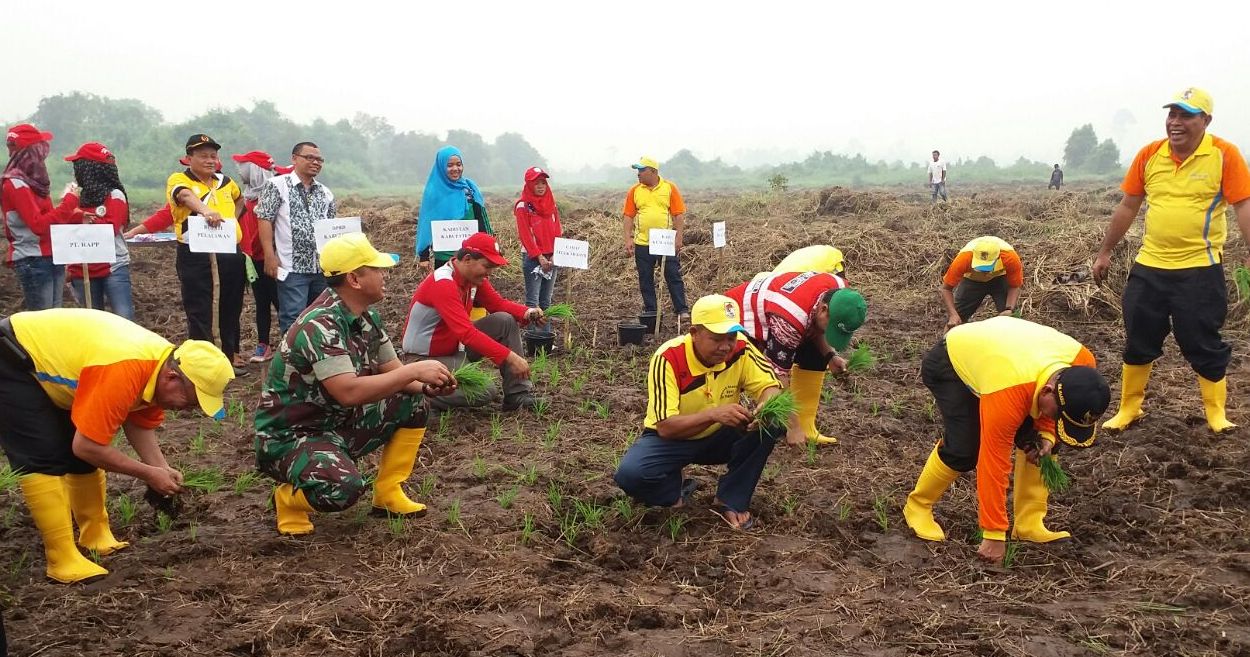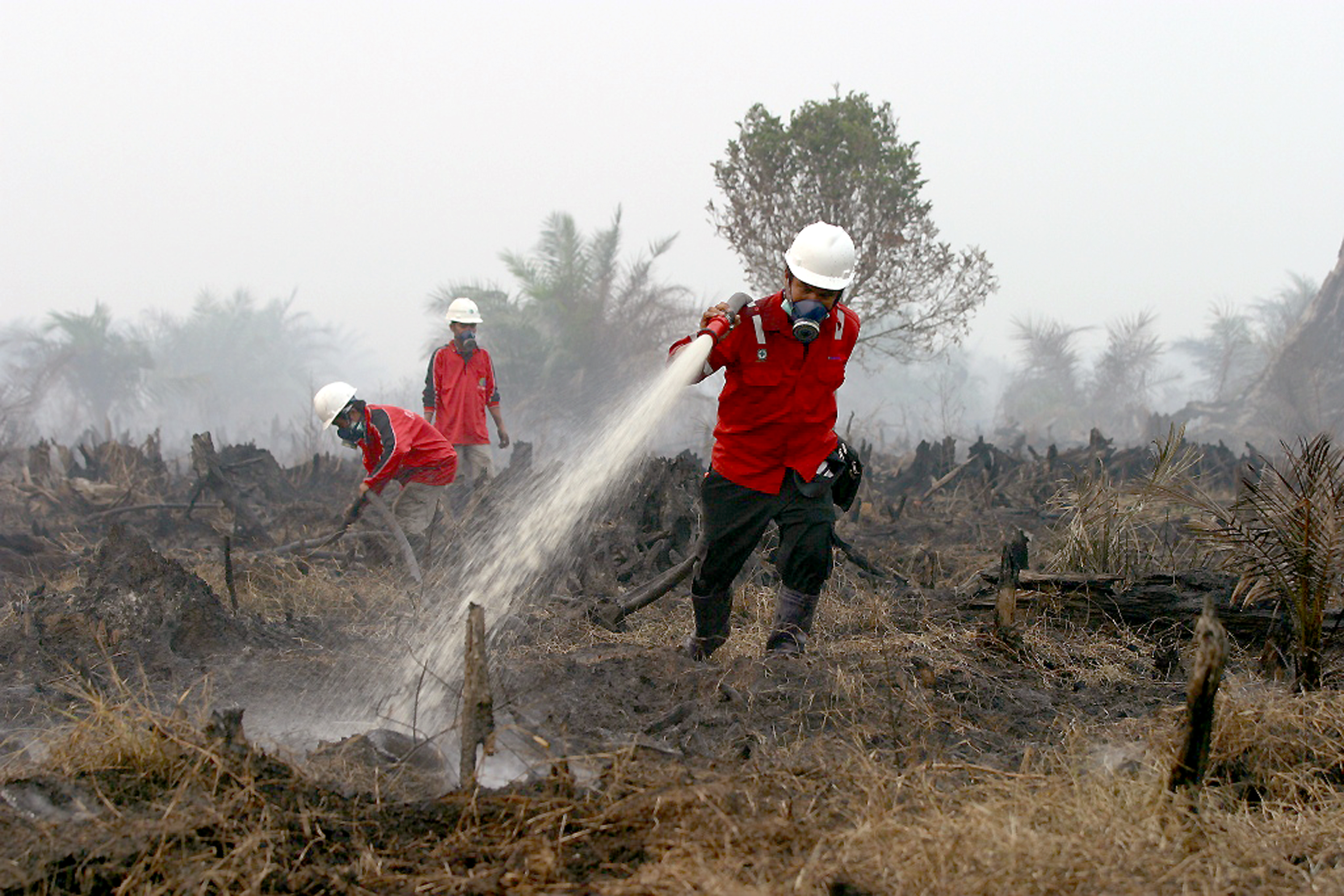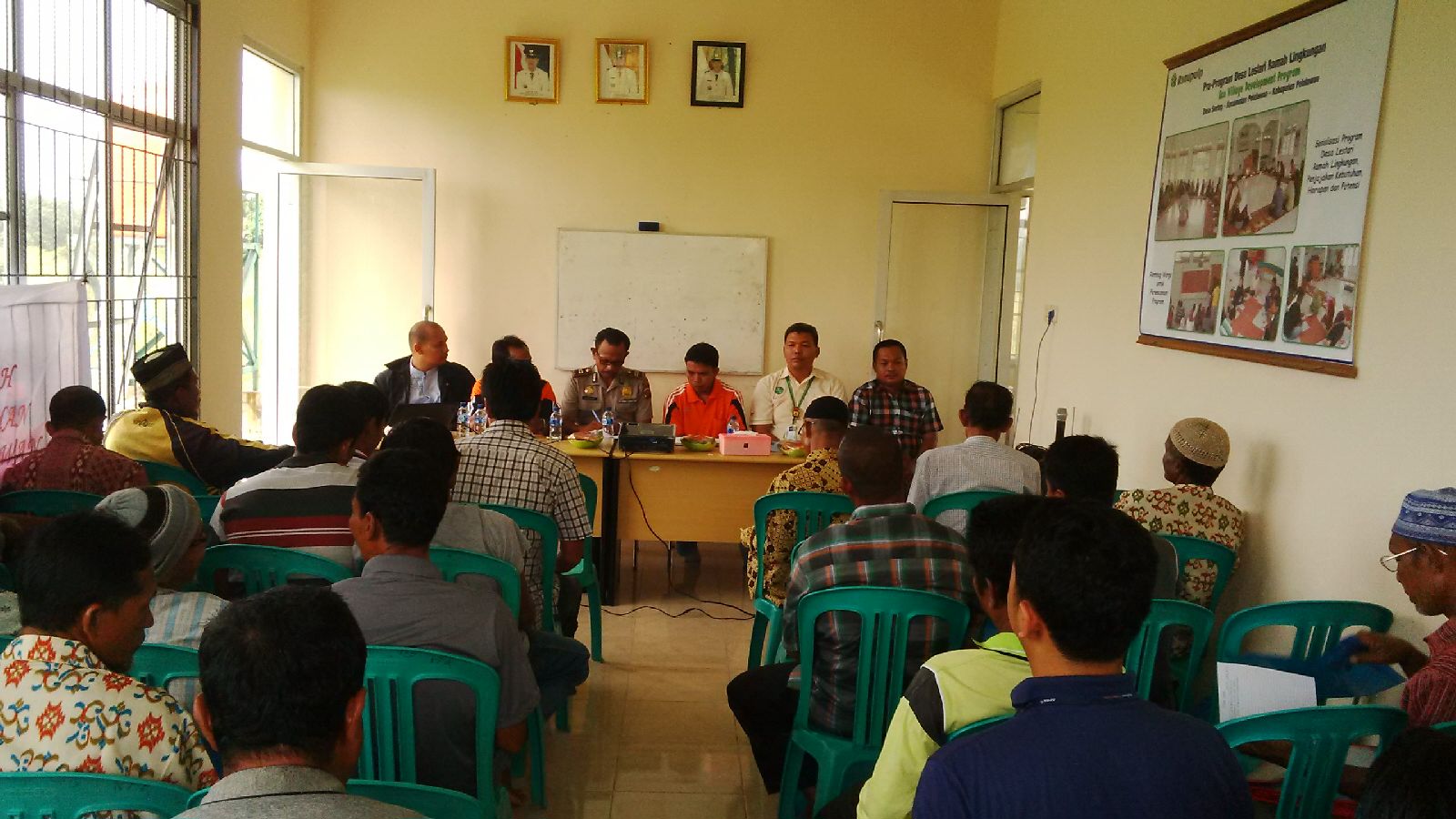Forests, Fire and People – a Perspective from the Field
As a plantation manager, fire is a key threat to our business. We do not burn because it makes no economic or environmental sense to do so. Our plantations are managed to maximize fibre and fire can significantly impact fibre quality and productivity from our plantations. At the same time, fire suppression is incredibly expensive and very dangerous work.

Community Agriculture Workshop: Part of Fire Free Village agriculture assistance program with the local communities focused on providing sustainable alternative crops and information about improved agricultural practices.
APRIL has committed over US$7 million to firefighting, including investments in equipment and resources. We fight illegally lit fires in our own concessions, as well as playing a significant role in suppressing fires in community and forest areas across the landscape.
So the obvious question is – if APRIL doesn’t burn why do fires occur in and adjacent to its concessions. Our data from the last three years of fires does not identify a single natural cause. We have attended over 2,000 separate fires in that period– both illegal fires lit in our concession and on land outside our concession. More than 70 percent of these are related to land clearing and agriculture. The perception that Indonesia has a forest fire problem is incorrect – Indonesia has a problem with the inappropriate use of fire for agricultural outcomes.

APRIL fire fighters battling fires near APRIL concession area
To develop a constructive response to the fire issue we first had to understand the root causes. APRIL Group already had a range of agriculture assistance programs in place and incentive programs
for villages not to burn – why weren’t these more effective? The answer quickly became clear: communities felt that their specific local issues were not being addressed.
With the establishment of our Fire Free Village Program, we took a different approach. We met with village communities and discussed the issue of fire and the role of fire management, particularly fire prevention. All of the communities we spoke to agreed that fire is a significant problem. They also pointed out that without a sustainable alternative, fire would continue to be used as the primary method of clearing shrubs and trees.
As part of the program framework APRIL developed five separate projects under the initial Fire Free Village Pilot that could be tailored to suit the requirements of each village. These were:
- No Burn Incentive
- Village Crew Leaders
- Agricultural Assistance
- Community Awareness
- Air Quality Monitoring
In isolation each of these projects have had limited traction – but together they address the specific root causes of fire and haze in each community and provide genuine sustainable alternatives to using fire as an agricultural tool.
All these projects have been operational for between 6 – 8 months and the results are very encouraging. In previous years these communities would generally start to burn areas during the dry season after resulting in dozens of small fires. With no management some of these fires would quickly spread. Conservatively we estimated that these communities experienced between 3 – 7 fires every week during the July – September fire season in past year. This means that during the 14 weeks of the fire season there were between 42 – 98 fires in village areas. This year, for the first time, fires have been monitored and actively suppressed. As a result the number of unmanaged fires in the Fire Free Village areas is between 0 – 3 for this entire season.

APRIL team discussing the Fire Free Village Program with the communities.
Contributing to that success has been the level of communication between the recently appointed community Crew Leaders and our Fire Prevention Manager. Several times a week our Fire Prevention Manager discusses local fire management challenges affecting each village and assists with resourcing solutions and developing capability locally.
There are many lessons to be learnt from the first year of our Fire Free Village pilot program – not the least of which is ensuring that we are listening to and understanding the specific local challenges of the communities we are working with.
There is still much to do – but we are convinced that implementing our No Burn policy through our Fire Free Village program to community partners outside our concession is the key to preventing fires in the Riau landscape.
Craig Tribolet
Strategic Fire and Protection Manager – APRIL




